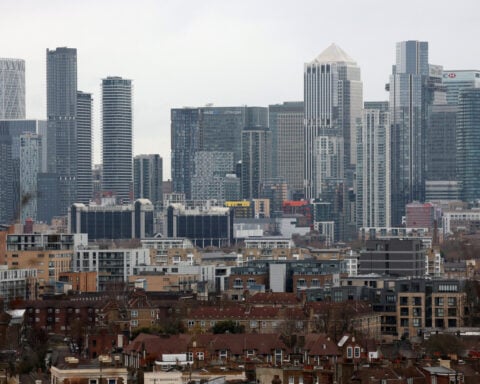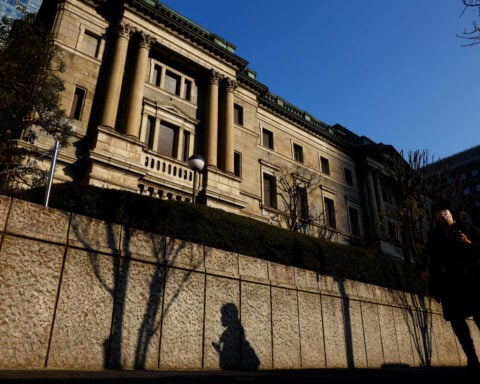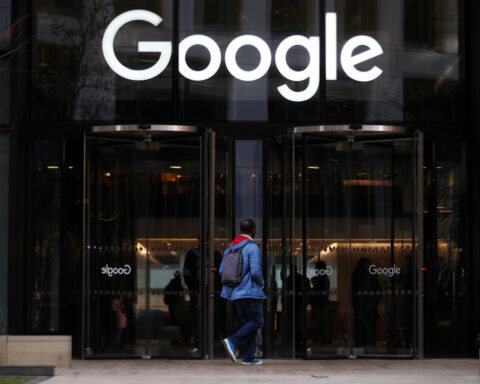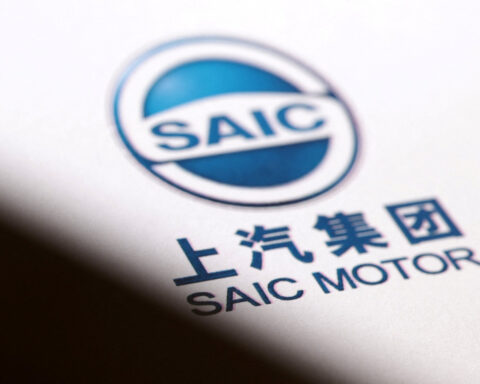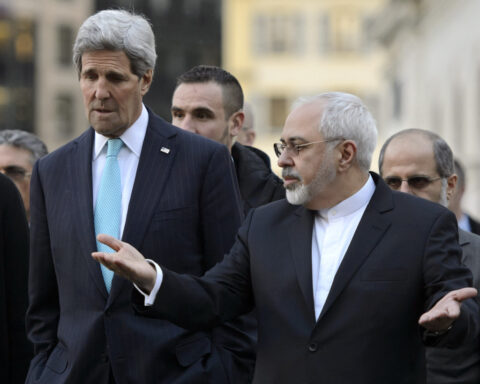New York (CNN) — Serious question. What are we, like, doing?
Markets are in a tailspin. Business leaders are panicking. Consumers, if they’re reading the news, are rightly confused or scared or both. Economists are squinting at the Trump administration’s tariff agenda and trying to make it, somehow, make sense.
Here’s a tip for anyone else who finds themselves gobsmacked: Stop trying to make it make sense.
Looking for logic? You won’t find it. As we’ve written before, President Donald Trump’s stated goals for his tariff agenda are full of contradictions. Even the math the administration used to calculate “reciprocal” tariffs on trading partners is more performance art than, well, math (more on that in a moment).
America’s economy is the envy of the world. Yet Trump believes it’s the victim of other nations’ unfair trade practices. Tariffs are his catch-all theory of how to level the playing field and revive American manufacturing. He is unshakable on that — even if it means pushing the US economy into a recession.
He claims tariffs will hurt foreign countries, and he’s not wrong. But he has so far shrugged at the fact that tariffs will needlessly punish Americans, too.
For no reason, the US government is now going to force Americans to pay more for things that we simply cannot produce domestically. Like, coffee. Certain wines. Rare earth minerals that are essential to the tech industry. Countless other things.
And perhaps most quixotically, Trump seems to believe we can undo decades of globalization and bring back the manufacturing jobs we already shipped overseas. (Even if we could “reshore” those industries, it would take many, many years.)
“There is no strategy,” said Mary E. Lovely, a senior fellow at the Peterson Institute, during a Brookings Institution event Thursday. “Are we supposed to knit our own knickers?”
Lovely added: “When people say they want manufacturing in the US, they’re saying high-tech, sustainable jobs” — not the lower-skilled and labor-intensive jobs that have migrated to developing economies.
“I think a great exercise is everybody go home, and when you’re dressing tonight for bed, look at where your clothes are made,” Lovely said. “All of these countries have large deficits, and that gives them the high ‘reciprocal’ tariffs.”
Bad math
Lovely and others have made the point that if you wanted to balance out some trade deficits, there are strategic ways to do it. Maybe you’d assemble a team of leading economists and policy experts and take a scalpel to each trade agreement and figure out where you have leverage.
But Trump’s government did not do painstaking dollar-for-dollar studies to try to nail down an accurate rate for each trading partner.
Instead, it took a country’s trade deficit, divided it by its exports to the United States, then divided that number by two. That’s it.
A lot of analysts were shocked by that sledgehammer approach.
“If a ninth grader in high school presented this tariff chart to a teacher in a basic economics class, the teacher would laugh and say ‘sit down and work on the assignment,’” Wedbush Securities analyst Dan Ives wrote in a note on Thursday.
Or, as Lovely put it: “It’s like going to your doctor, finding out you have cancer, and the basis for your medication is your weight divided by your age.”
Here’s my favorite part, though: When economist and author James Surowiecki figured out the convoluted formula, the White House tried to say he was wrong and released a scary-looking equation with Greek letters to try to illustrate the very sophisticated math they used to calculate this monumental change to global economic policy.
Turns out, that equation worked out to exactly what Surowiecki said it was, just dressed up with symbols that make it look more complicated — and to intimidate people who question what they’re doing, as economist Brendan Duke told me.
That is not economic policy — it is Russian roulette in an economic policy costume.
“Oh sh—”
Since the president’s Orwellian “Liberation Day” speech, the global response hasn’t exactly been celebratory.
Stocks began tumbling almost immediately, shedding trillions of dollars in market value overnight. All three major US indexes posted their biggest single-day drop since 2020.
Global leaders expressed shock; and some, including allies like France and Canada, promised to retaliate. Oil fell more than 6%. Stellantis, the carmaker behind Jeep and Chrysler, is already laying off 900 American workers and pausing production at some of its Canadian and Mexican plants, citing the impact of tariffs.
When the CEO of RH (formerly Restoration Hardware) saw his company’s stock fall 40% during an earnings call Wednesday evening, shortly after Trump’s speech, he uttered two words that just about summed up the thoughts of every other executive that day: “Oh, sh—.”
Shares of multinational companies like Nike and Apple were hit hard, as were retailers like Five Below and Dollar Tree, which rely heavily on cheap imports from Asia.
“This is the policymaking equivalent of a suicide bomber,” Michael Block, market strategist at Third Seven Capital, told my colleague Matt Egan. “They’re ignoring every rule of classic micro and macroeconomics.”
So that’s the word on the Street, the institution that Trump has previously viewed as a real-time report card on his presidency.
On Thursday, though, Trump shrugged off the market reaction, telling reporters: “I think it’s going very well.”
The-CNN-Wire
™ & © 2025 Cable News Network, Inc., a Warner Bros. Discovery Company. All rights reserved.

 Trump has begun another trade war. Here's a timeline of how we got here
Trump has begun another trade war. Here's a timeline of how we got here
 Canada's leader laments lost friendship with US in town that sheltered stranded Americans after 9/11
Canada's leader laments lost friendship with US in town that sheltered stranded Americans after 9/11
 Chinese EV giant BYD's fourth-quarter profit leaps 73%
Chinese EV giant BYD's fourth-quarter profit leaps 73%
 You're an American in another land? Prepare to talk about the why and how of Trump 2.0
You're an American in another land? Prepare to talk about the why and how of Trump 2.0
 Chalk talk: Star power, top teams and No. 5 seeds headline the women's March Madness Sweet 16
Chalk talk: Star power, top teams and No. 5 seeds headline the women's March Madness Sweet 16
 Purdue returns to Sweet 16 with 76-62 win over McNeese in March Madness
Purdue returns to Sweet 16 with 76-62 win over McNeese in March Madness
